Perforated Paper Bookmarks 1850's - 1880's
documented from the collection of Claudia Dutcher Kistler
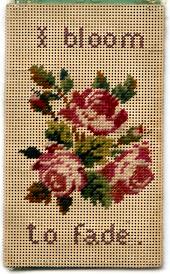
24 holes per inch

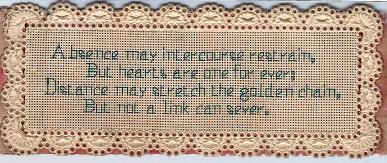
The bookmarks shown here were all stitched on paper. These patterns could also be stitched on fabric.


24 holes per inch
1860's

24 holes per inch
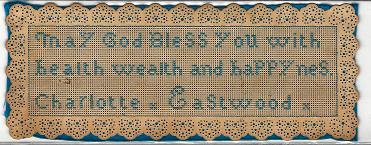
Pressed Paper Pieces
The earliest stitched paper pieces had a pressed paper border.
Cards with elaborate embossed raised paper and punched borders became popular in the late 1840’s. Heavy paper was put through a press which produced raised textures and shapes. This type of embellished paper was often used as a border on invitations and for memorial tributes. It is genius that someone thought of punching small evenly spaced holes as part of the design of this embellished paper for stitching. The earliest stitched pieces have more border than stitching area. The later pieces had more stitching area and less elaborate borders.
These pressed paper pieces were commercially available.
They had a stitching area with 20 - 24 holes per inch.

1847


1950's

shaped bookmark
2.2" w x 6" h
24 holes per inch

with areas that could be
stitched were not
limited to bookmarks.


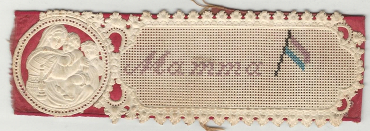



Returns
2.5" w x 6.25" h
24 holes per inch
The flowers are a
picture that is
glued to the
bookmark.


same border and size.
2.88" w x 7" h 24 holes per inch
To My Father 1863 has a
picture glued to the paper.
1860's



Printed not stitched. Total size: 4.5" w x 3" h
Bookmark designs were made by counting from a chart, stitching over printed paper, or by cutting away the paper using a technique called Paper Lacework.
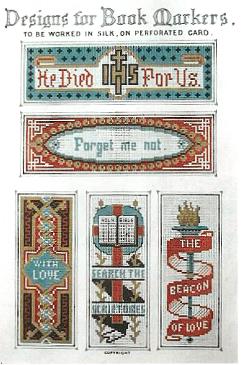
1867
bookmark designs

Paper Lacework Bookmarks
A technique where the paper was cut away (or stitched) to make an open pattern that looks like lace.

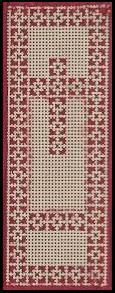
American Advertising Bookmarks
Below are rare examples of advertising bookmark cards that stayed together.

1877

Patent date Feb 23, 1877.

Three paper samplers featuring bookmark designs
1865
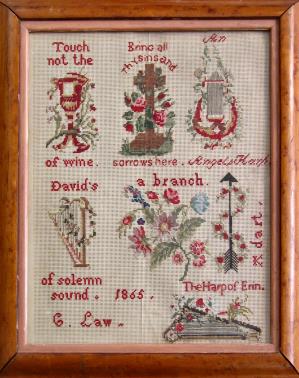
18 holes per inch
I own the 1877 sampler below. I do not own the 1866 sampler. I came across the forgotten 1866 picture while putting this information together. Usually in my documentation I only use pictures from my collection or with permission. The quality of the picture of the 1866 sampler is poor, but it needed to be included. When you see two similar counted thread samplers, you can guess that this format could be a school project or a family project - where a sibling had access to an older family sampler. The other option is that the format and patterns were commercially available - as bookmark patterns were.

24 holes per inch
1877

were found in England.